Atif Aslam: Music for my ears
Singer Atif Aslam’s fourth album will be all about him and his journey to find himself.
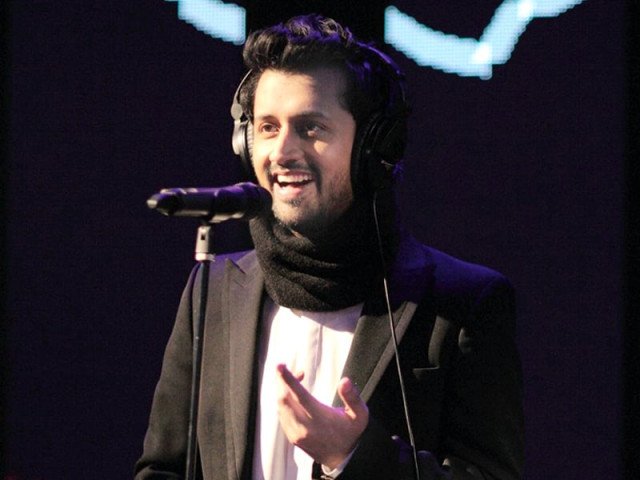
Atif Aslam: Music for my ears
The young boy of yesterday, who pranced into the Pakistani music scene with “Aadat” showed the world that he has evolved into a mature artist with “Charkha Naulakha”. In a world where pretty much everything has been tried before and making it big means selling yourself short to commercial agents, Atif Aslam chose to step back and embrace the cultural poetry of the subcontinent. His crisp vocals, seasoned with a tinge of folksy dialect have given subcontinental poetry a new avatar. However, amidst all the hype and fanfare, Aslam feels that his music should undergo metamorphosis and be more about self-discovery.
Time for some soul searching
The singer is distancing himself from commercial endeavors, that urged him to feature consistently in Bollywood ventures, and is focusing on challenging himself musically now. Talking about his fourth album, which is currently untitled, Aslam says he wants his latest project to have more weightage and depth than previous album Meri Kahani. “I’m getting away from the commercial approach. I feel it’s necessary to come clean as an artist, so this album will hopefully be very pure and close to me and my life,” says Aslam.
The singer says that to him, making music is a personal process in which he first likes to strum a few chords, lay down some scratch vocals and get the melody for the song. The lyrics come in later depending on the mood. “When I work or approach any song, I try to keep my three greatest inspirations, that is Chris Cornell, Jeff Buckley and Nusrat Fateh Ali Khan, in mind,” adds Aslam.
Rock the boat
The singer complains about the tenacious attitude of the people of Pakistan and says that even though he is following his typical music making pattern, he will show a different side of him no matter what. “People have always been reluctant to accept change. The change Junoon introduced penetrated the Pakistani mindset after a long time. This time I’m going to do it deliberately to explore myself,” quips Aslam, who is currently in Lahore recording his latest album. Currently, he is set to release four songs as part of “Coke Studio” and has also worked on the Race 2 soundtrack.
For the greater glory of music
Aslam has also been working to promote Pakistan musicians and artists. He says that encouraging new talent is important to him because he knows there are no regimented platforms to polish and promote raw talent. However, he praises the efforts of “Coke Studio” that gave younger bands such as Qayaas a chance to prove their mettle to the masses. “To be very honest, if initiatives like ‘Coke Studio’ don’t come up, I may have to come out with my own label,” says Aslam, who is extremely happy with his rendition of “Charkha Naulakha” with Qayaas due to its progressive rock sound which included sections of inspiration from Led Zepplin’s song “Kashmir”. For the time being, the singer is elated to get the opportunity to perform with fresh bands on the show.“I feel excited whenever I’m jamming with fresh musicians for ‘Coke Studio’. I feel like I’m contributing to their brand new musical careers.”
You walk alone
The artist’s own career growth can be seen in the fact that he performed with the legendary Slash, Shaun Lenon, Matt Sorum, Gilby Clarke and Lanny Cordola in both English and Urdu in 2011. The ability to adapt has become an inherent part of Aslam’s music and this quality is taking him to places. Recalling the experience, Aslam says that such collaboration is positive for the music scene. “I was introduced to these musicians very late when I was around 24 or 25 but they were very kind to let me share the stage with them,” says Aslam. “We developed a very good working relationship so we may bring them into ‘Coke Studio’ in the future.” The singer is confident about the possibilities and sees the opportunities snowballing into bigger collaborations in the future. However, he says that just like his acting career, he hasn’t really given much thought to an English album.
Going back in time
2002
Atif Aslam started his professional career as the lead vocalist of the band Jal in 2002.
2003
In 2003, due to differences with lead guitarist Goher Mumtaz, Aslam parted ways with the band to pursue a career as a solo artist.
2004
On 19 July, 2004 he released his first solo album, Jal Pari. The album featured various smash hit tracks such as “Bheegi Yaadein”, “Ehsaas”, “Mahi Ve”, “Ankhon Sey” along with the title track “Jalpari”.
2005
In 2005, three tracks from Aslam’s first album (“Yakeen”, “Ehsaas” and “Aadat”) were included in the soundtrack of an independent Hollywood venture titled Man Push Cart.
The year also marked his venture into Bollywood as his super hit song “Woh Lamhe” featured in Indian suspense thriller Zeher. The song even earned him a nomination for the Filmfare Award for Best Male Playback Singer.
2006
Atif Aslam released his second solo album, Doorie, on 22 December 2006. The album was his way of experimenting with different musical genres and exploring his musical abilities. The tracks “Doorie”, “Ehsaas” and “Hum Kis Gali” were announced as chartbusters as they were extremely well-received in both Pakistan and India.
2008
Aslam’s third solo musical venture, Meri Kahani, was released worldwide on January 18, 2008. The artist went back to his roots in this album and created tracks similar to his original sound of 2004. The album had a total of 12 tracks.
He was also awarded the Tamgha-e-Imtiaz (Medal of Excellence) by the Government of Pakistan the same year.
2009
In 2009, Aslam made his presence felt in the show “Coke Studio”, produced by Rohail Hyatt. He was widely appreciated in the show as he gave five
performances experimenting with different musical avenues.
2011
Aslam made his acting debut in acclaimed film-maker Shoaib Mansoor’s film Bol which was released in June 2011. He even sang two songs for the movie — “Kaho” and “Hona Tha Pyaar”.
Published in The Express Tribune, June 3rd, 2012.

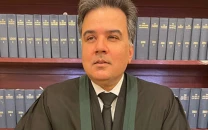
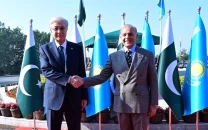
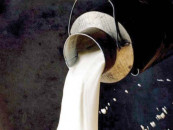
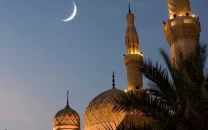

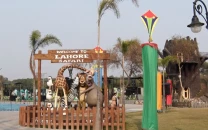












COMMENTS
Comments are moderated and generally will be posted if they are on-topic and not abusive.
For more information, please see our Comments FAQ